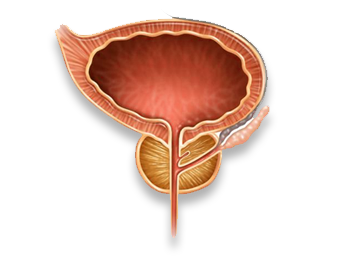Prostate Cancer Pathology
Potential Diagnoses
1. Prostatitis
Most of the biopsies that indicate no cancer are reported as prostatitis. This is particularly common among old-aged men, and it does not require treatment as it will not cause any active infection.
2. Prostatic Intraepithelial Neoplasia (PIN)
There are two types of PIN, which are high-grade and low-grade. The high-grade type has clinical significance. It is a condition in which prostatic ducts are structurally normal in terms of histopathology but the cells lining the ducts contain atypical cells. Patients with high-grade PIN detected in their biopsy samples have a 30-50% chance of being diagnosed with prostate cancer as indicated by their repeated biopsies.
3. Atypical Small Acinar Proliferation (ASAP)
4. Prostate Adenocarcinoma
Nearly all prostate cancers are adenocarcinoma. In a series of autopsies, presence of prostate cancer was detected histologically in 50% of the cases. However, most patients died from other causes when the disease was at a clinically insignificant stage. Still, prostate cancer continues to be a risk for increasing number of men as the human life expectancy increases. .
When adenocarcinoma is detected as a result of the prostate biopsy, the disease is graded based on its level of aggressiveness. The most common grading system is the method called Gleason Score. The Gleason Score ranges from 1 to 5 (1 is the best while 5 is the worst) depending on the degree of tissue and cell deterioration caused by cancer cells. All cancerous materials in the biopsy are examined to determine the grades and predominance of the cells. The grades of the two most predominant groups are added together to determine the Gleason Score. This grading method is used to have an initial idea about the state of the tumor inside the prostate, and thus, determine the most appropriate treatment method for the disease.
5. Other Types of Prostate Cancer
Types of prostate cancer other than adenocarcinoma are rare. They are more aggressive than prostate adenocarcinoma.
Book an Appointment with Dr. Fatih Atug
Cantact Dr. Fatih Atug
Fatih Atug, M.D.
Urologist and Robotic Surgery Specialist
hidden +90 212 234 5958
hidden +90 532 234 5504
hidden info@fatihatugmd.com
hidden Harbiye Mahallesi, Maçka Caddesi,
Bahriye Apt. No:13 D: 3
Şişli / İSTANBUL
 |
 |
 |




